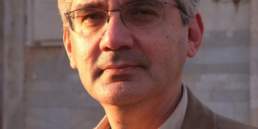No antenna has organised so many Agoras as AEGEE-Enschede. And they are not done yet! From 16th to 21 May 2023 AEGEE-Enschede will host its fifth Agora, which will also be the 75th of AEGEE-Europe. The Golden Times asked Main Organiser Rik Smale and Faisane Ruijne, President of Board XXXVII of AEGEE-Enschede, why no active member should miss it.
GT: AEGEE-Enschede will be the first antenna to host five Agoras! Is your antenna proud of this achievement?
Faisane: Yes, you can really feel that something big is coming to Enschede! Especially now we see the applications rolling in. We are really excited that the Agora is coming back to Enschede and are all proud of this achievement. Even old organisers have contacted us and are sharing their experience to make sure the organisation of the Agora goes well.
GT: What was your motivation to host the Agora again? It can’t really be a big challenge anymore, can it?
Rik: Our motivation for this Agora is to create a meaningful experience for our participants, and to spark the AEGEE spirit after the challenging years. We are driven to make the most of our time together during the Agora, and with the tagline “Sources of Change”, we want to inspire participants for a sustainable future. However, this also relates to the restructuring of AEGEE-Europe as this is highly important, meaning this Agora is really about change!
Faisane: We have organised Agorae in the past, but organising each Agora presents its own set of challenges. This will be our largest event post-covid yet, and we aim to fill the knowledge gap that has formed in the past years. We hope not only the participants will return home with new impressions and inspirations, but also our own members and helpers!
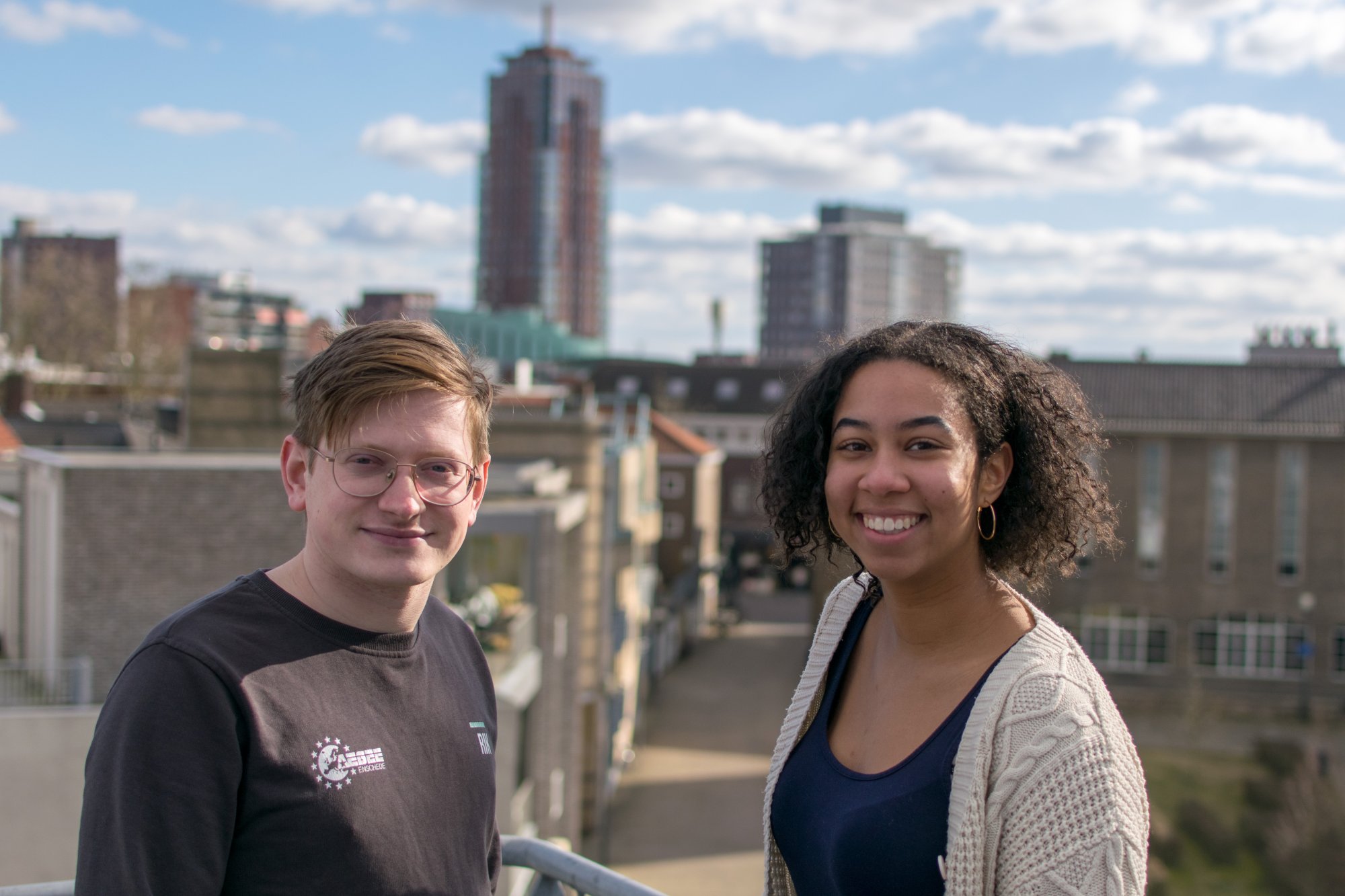
GT: Do you have a blueprint for organising the Agora? Can you call the university and say: “we host it again” and you get all necessary resources?
Faisane: Haha, we wish we could just call Taylor up! We don’t have a blueprint, but we do have an experienced Core Team and have help from past Agora Enschede organisers who provide us with insights into the logistics, fundraising as well as the personal development.
Rik: Of course, many people at the uni are still around who were there in 2017 for example. At the same time, many things and policies have changed and people have ended up at different university departments, so there is quite a bit of work involved in getting in touch with the right people. However, this makes it even more fun, and eventually we end up at the right person.
GT: When did you start preparations?
Rik: Back in September of 2021, we came together with a small group of members and discussed the possibility of bringing the Agora to Enschede again. With the future looking better in terms of the pandemic, we investigated the possibility and contacted possible partners. After discussing it at our local Agora in January 2022, we looked for our Core Team and started writing our Bid, which we submitted right after our 35th Anniversary last year.
GT: How are the preparations for the Agora going? Is basically everything arranged?
Rik: Everything is going quite well! We currently have the lodging and catering arranged for all participants, and are working with the University of Twente on reserving the necessary rooms. Furthermore our committees are working hard to work out the details.
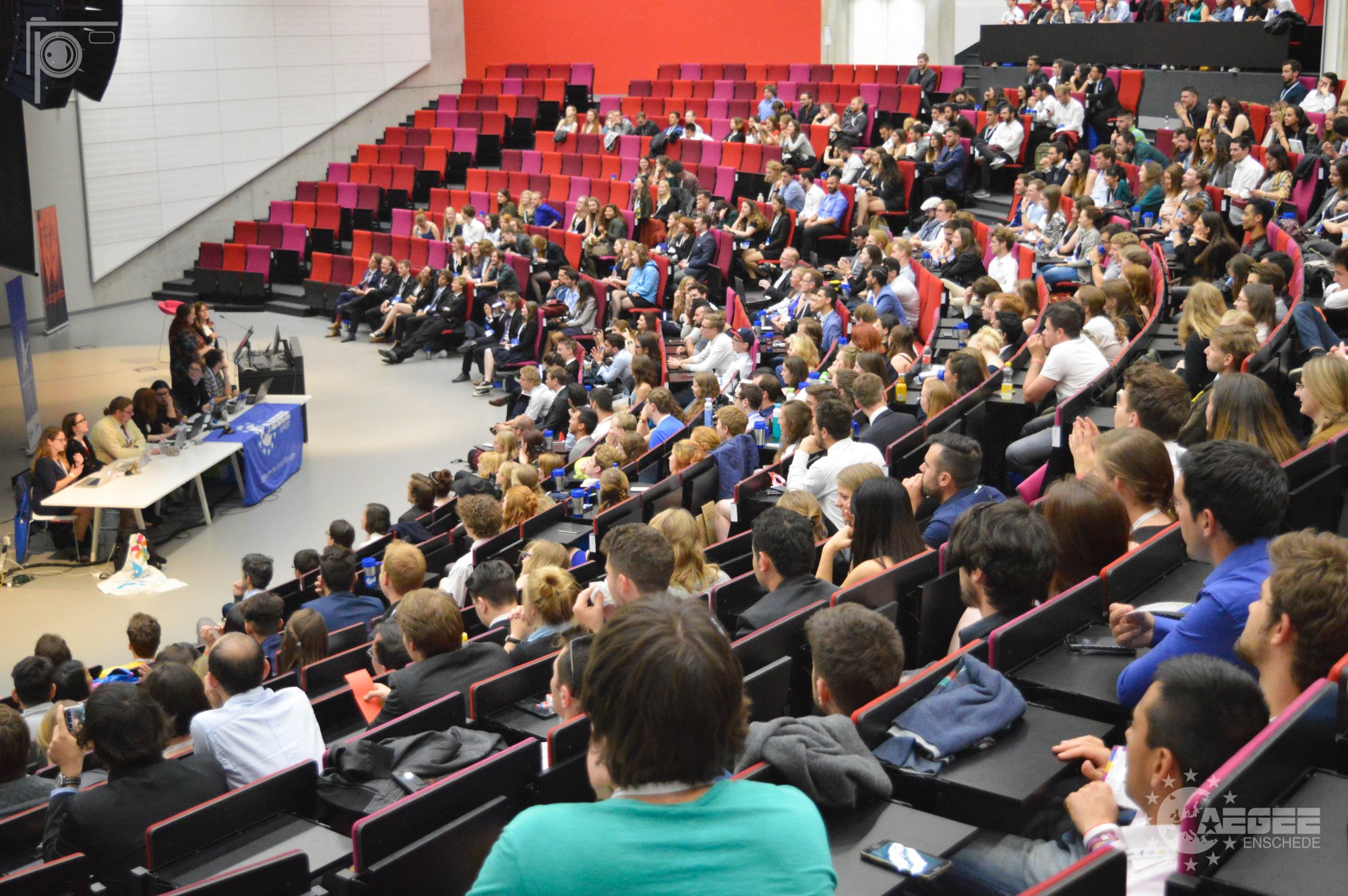
GT: Which part of the Agora arrangements so far makes you most proud or happy?
Rik: Haha, where do we start? There is so much that has happened in the past months, but I really am most proud of the Core Team and our committees who help us to make this Agora happen. Just last week, we managed to arrange a deal with Deutsche Bahn to put a price cap on train tickets to Enschede from anywhere in Germany; we got more details about inclusivity at our university and worked out the details on all venue locations; we worked out the details for our content day and contacted possible partners; and finally we had a meeting with a sustainable festival that’s happening on campus, where we hope one of the parties will be happening! I mean, with so much going on there is not much that doesn’t make me happy!
GT: Which organisational part gave you the biggest headache?
Rik: I think the most challenging part is managing your studies, work and social life besides organising the Agora. All Core Team members have been pursuing their studies next to organising the Agora, with one of our members completing their Bachelor’s and another their Master’s. Managing all of this, whilst maintaining a healthy balance, is really important in making sure everyone is happy with their role.
GT: How big is your organising team?
Rik: We have a fantastic Core Team that consists of seven people, however we are not alone in organising the Agora! Our Logistics Committee of six people manages the time planning and logistical challenges. The Social Program Committee of eight people makes sure there is an amazing program in the evenings. To make sure everyone feels right at home when arriving in Enschede, we have our Welcoming Committee with four members ready to give you a warm welcome. Add to that our Supervisory Board, Audit Committee, and the various board members fulfilling roles in these committees, and we end up with almost 40 people actively working on the Spring Agora at the moment!
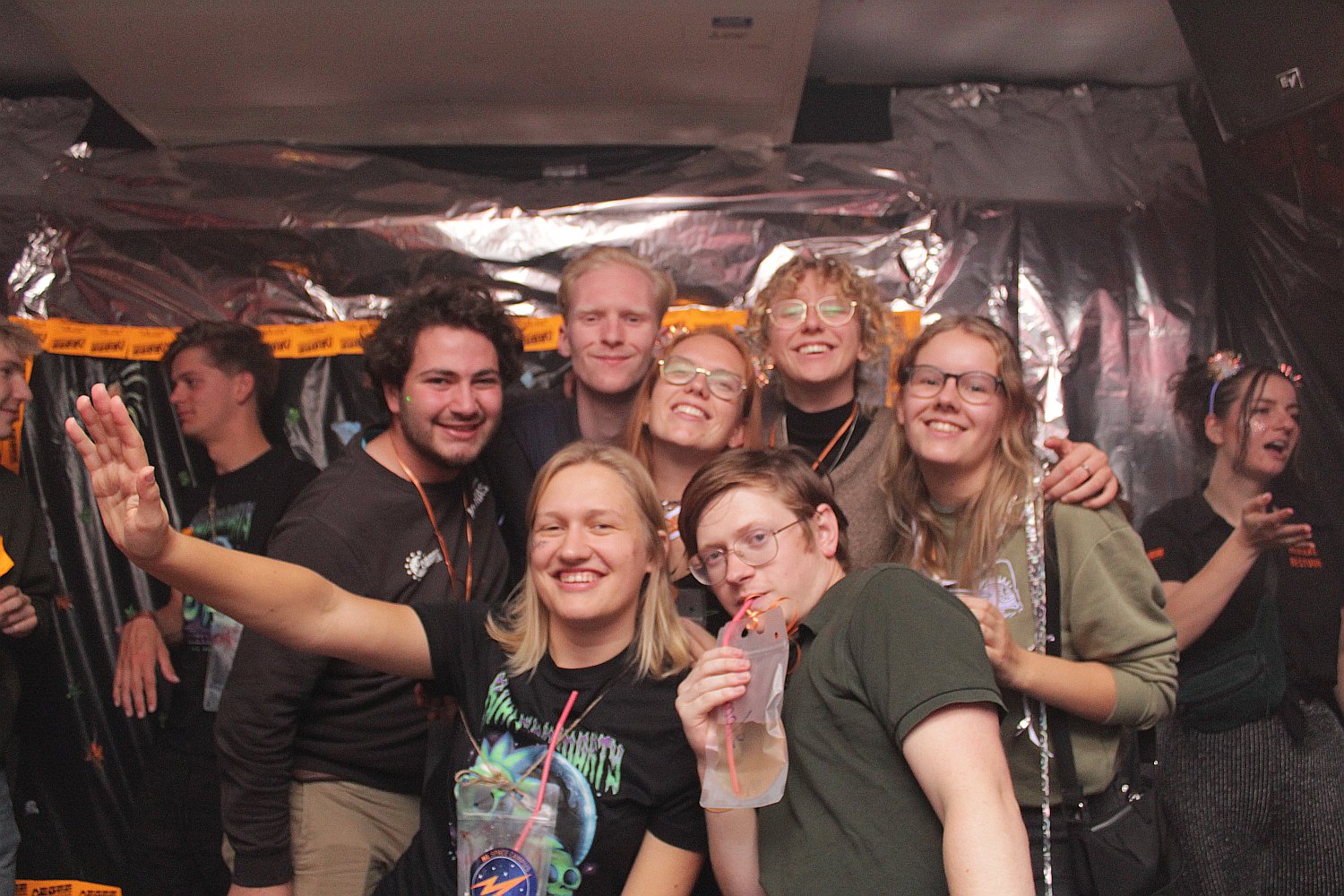
GT: Can people apply as helper?
Rik: We want as many participants to enjoy the Agora and the Sources of Change program as possible, so we are currently not actively looking for helpers as our local is big enough to supply all helpers. If we need helpers in the future we will let the network know!
GT: The last Agora in Enschede was six years ago – are some of those organisers give you advice or help with contacts?
Rik: Yes, we are happy to have previous organisers that help us with organising the Agora. Some big names like Tom Simons and Paul Smits are actively involved in our Supervisory Board, which advises us on policy and arranging everything for the Agora. They’ve both been to many Agorae and have served different roles within AEGEE so we can make the most of it.
GT: How many people can attend the Agora?
Rik: We won’t be breaking any records this Agora, the maximum capacity of the plenary room is around 800 people. But looking at the number of participants for previous Agorae this should be enough.
GT: The fee is the highest ever for an Agora. You made some statements that people get a lot of services. But why is the fee so high this year, also compared to last time, when the fee was 60 Euros, including a cup deposit?
Rik: We really want people to experience a memorable event, and we want everyone’s experience to meet that standard. A lower fee would result in either cutting a day from the program, like in 2017, or a reduced number of meals, with participants left to arrange their own food – which would likely be more expensive, especially due to the recent inflation. With the feedback we got in 2017, we also didn’t want to resort to cold meatballs with potato salad…
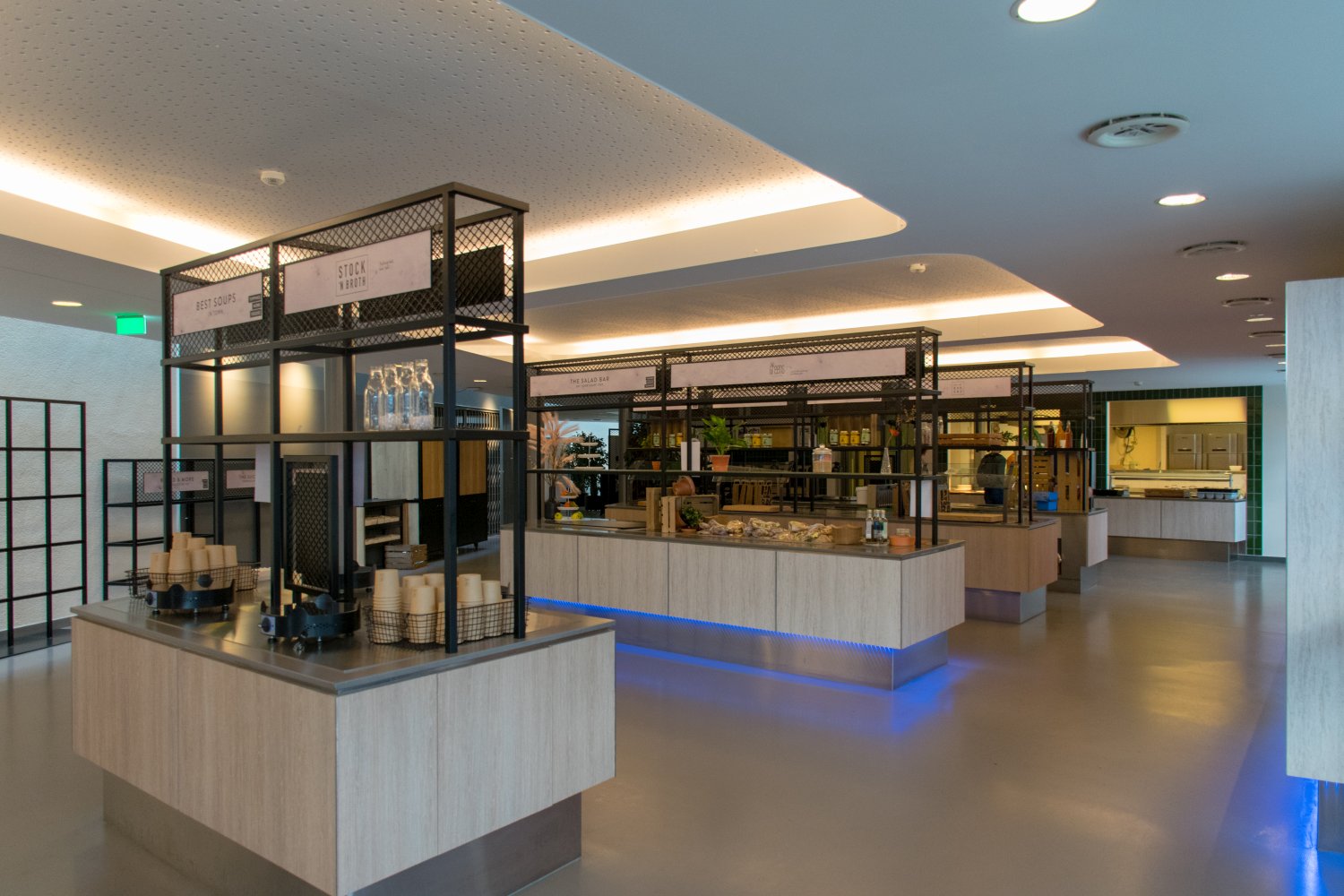
GT: What about logistics? Will there be short distances between accommodation, plenary and parties?
Rik: Just like in 2017 and in previous editions, the plenary sessions will be held at the university’s main lecture hall, in walking distance from the gyms. Various locations will be used for the social program, these are yet to be confirmed but we expect these to be close to the gyms on at least three of the evenings. That will help us make it more accessible for participants to go home when they are done partying. Next to this, the alternative program will also be located close to the gym. So if you want, you can stay only at the campus.
GT: Are there any spectacular venues for the opening?
Rik: We are working on the details of the opening ceremony, so the location will still be a bit of a surprise!
GT: How does your antenna contribute to the Agora topic “Sources of Change” thematically?
Rik: We are organising this event as sustainably as possible as to minimise our environmental impact. We are offering sustainable catering and are offering workshops and have invited our partners to the Green Technology fair. Meaning participants will get an inspiring day and get to be the source of change!
GT: Where will the parties take place and what do you plan for them?
Rik: We are working hard to organise a party on the grounds of Green Vibrations, a sustainable music festival held at the University’s campus. This open-air venue will provide a unique atmosphere for an Agora, including a live band, featuring a number of members of AEGEE-Enschede! Additionally, we plan to minimise the use of disposable plastic at our social program events! Also, don’t forget about the activities next to the parties, providing plenty of fun for anyone who is looking for a different vibe!
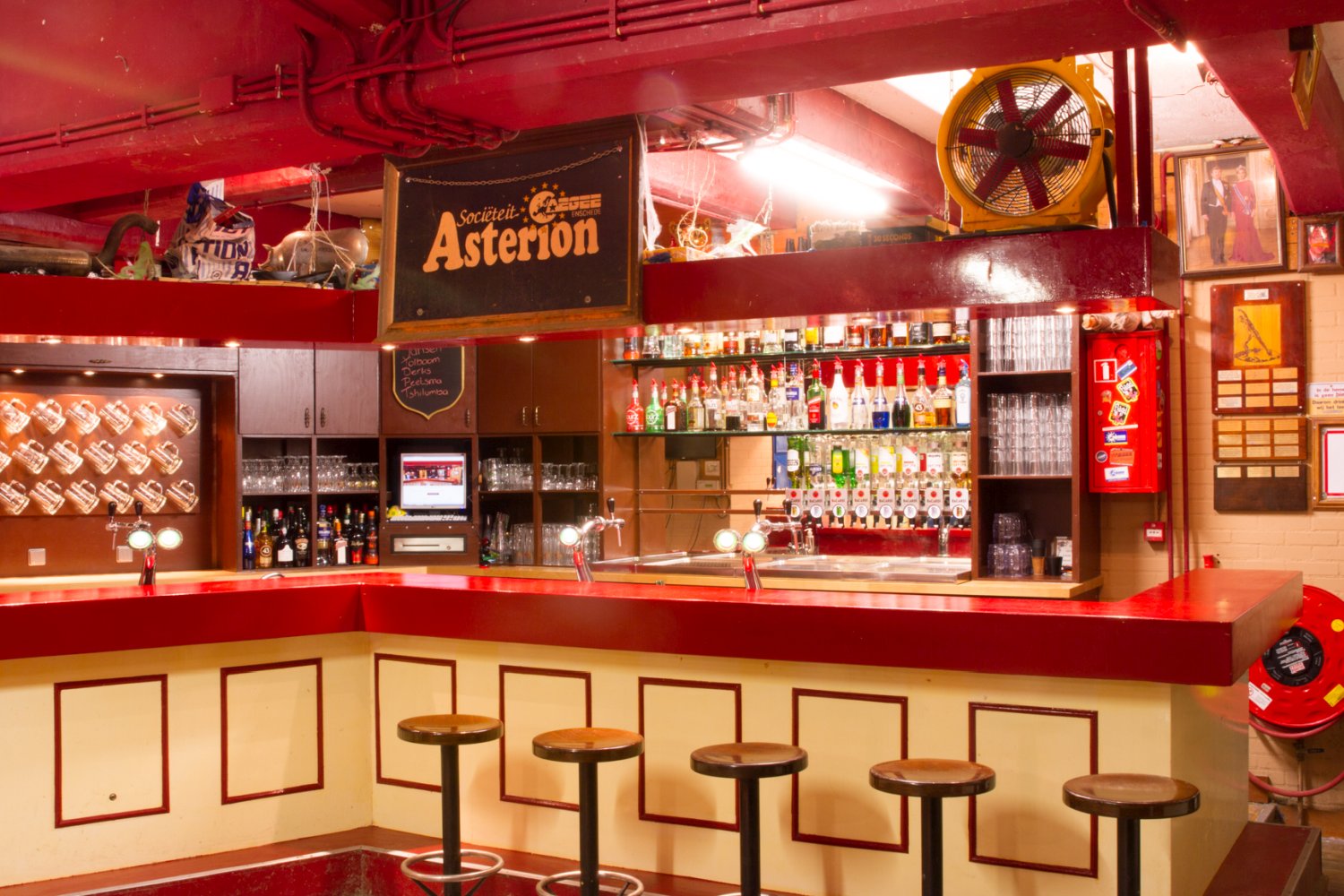
GT: One location will be the Asterion, your own pub. What can you tell us about it? And how come you run your own pub?
Rik: Yes, we are very happy to let participants party in Asterion once again! It’s our own pub right in the heart of the city centre. We have our weekly social drinks and other activities there, but people can also rent it. We were lucky with the university when they gave us the opportunity to rent it back in 1995 and we have run it ever since. Even through the Covid times we were able to adapt and come together!
GT: Which pre-events or post-events do you know of?
Rik: So far, AEGEE-Aachen is hosting the promising “2Wheels2Agora”, with a fantastic sustainable mission. Participants will cycle all the way from Aachen to Enschede, to arrive on time for the opening ceremony. We have been in contact with the organisers and if other locals are planning to organise a pre-event, don’t hesitate to contact us!
GT: Can you tell us a few words about AEGEE-Enschede? How big is your antenna, what are the main events that you organise this year?
Faisane: AEGEE-Enschede is, with more than 300 members, one of the largest student associations in Enschede. Next to our weekly pub nights on Tuesday and Thursday, we organise dinners, and of course parties! Also we will have our anniversary weeks in March with lots of fun things to do!
More info:

